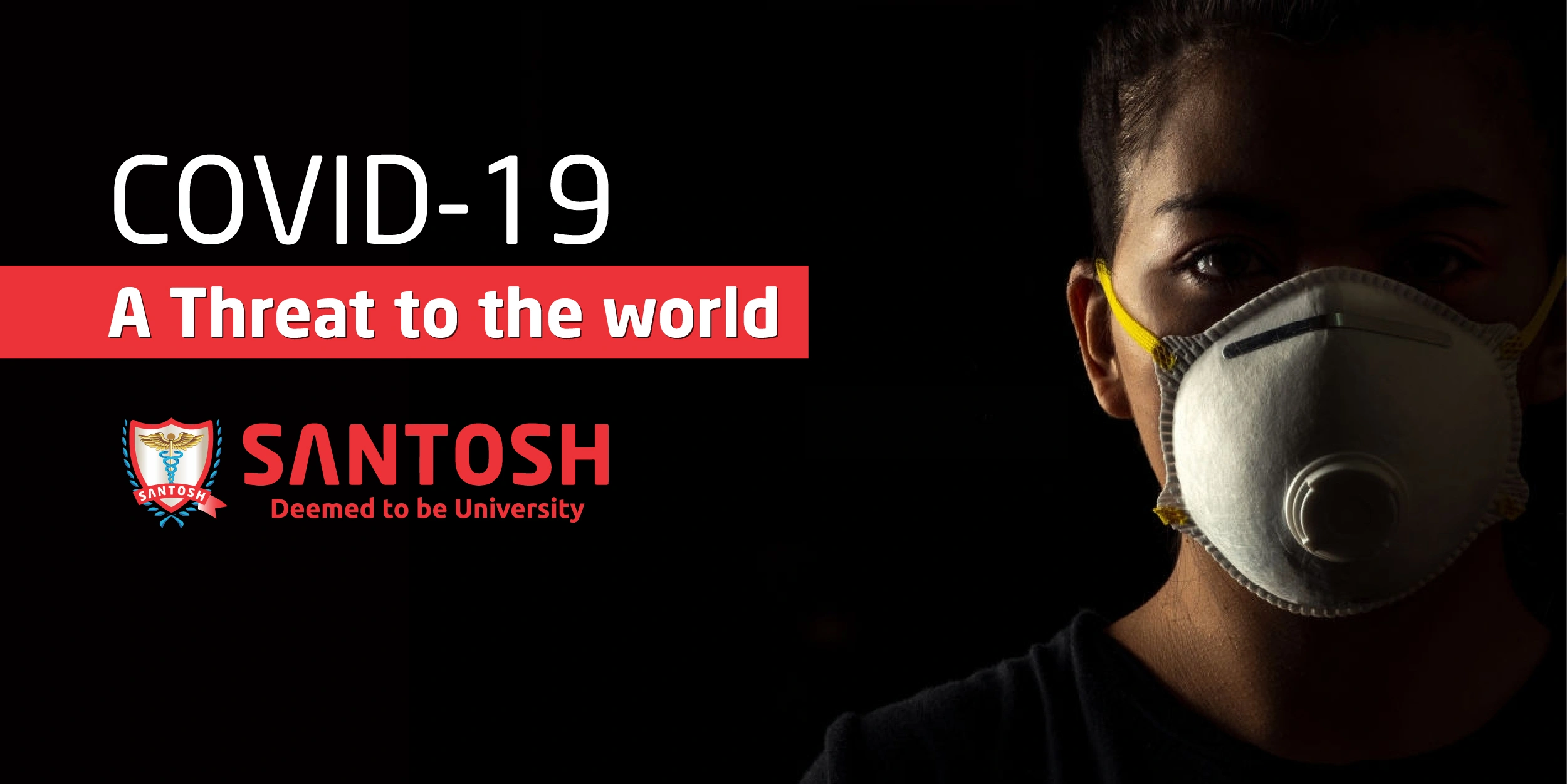
COVID-19 is caused by an infection of the SARS-CoV-2 virus which was first identified in the city of Wuhan, in China's Hubei. This infection is caused by the onset of pneumonia and acute respiratory distress syndrome (ARDS).
Symptoms
The symptoms of COVID-19 include dry cough, fever, and shortness of breath. It is believed that symptoms can appear between 2-14 days after exposure to the virus. Wearing a facemask especially by those who already have caught the virus will help in preventing the spread of the disease to others.
The new studies suggest losing your sense of smell and taste is an early sign of COVID-19.
Transmission
The SARS-CoV-2 virus spreads from person-to-person via:
- droplet transmission (large respiratory droplets that are thereafter sneezing, coughing or dripping)
- aerosol transmission (when someone is coughing or sneezing in the room)
- contact transmission (touching a contaminated surface and then touching your mouth, nose, or eyes with the same hands or fingers.)
- direct transmission (by kissing, shaking of hands, etc.)
Prevention
The best way to prevent this infection is by avoiding exposure to the virus.
The most effective and important way to prevent COVID-19 is by washing your hands from time to time.
You should wash your hands regularly and thoroughly with soap and water (lather for 20 seconds) OR use an alcohol-based (at least 60%) hand sanitizer.
Other actions that will help in preventing the spread of COVID-19:
- Try to avoid contact with others who are sick
- Always avoid touching your mouth, nose, eyes or face
- Cover your coughs and sneezes by tissue or your elbow
- Clean and disinfect surfaces with alcohol or bleach-based cleaning solutions as they work best in killing coronaviruses
- Facemasks do not help in protecting you from COVID-19 but will help in preventing the spread of the disease to others.
- Maintain social distancing as much as possible
- Practice self-isolation
What to do if you are sick
- Make sure to prevent the spread of COVID-19 if you are Sick (CDC)
- Adopt environmental cleaning and disinfection recommendations (CDC)
What to do if you come into contact with anybody who is already sick?
In order to keep yourself and others safe, you should isolate yourself from other people for 14 days.
What does self-isolation mean?
Self-isolation means trying to stay away from situations where you could infect other people. This means any type of situation in which you may come in close contact with others either by face to face contact which is closer than 3 feet for more than 15 minutes, such as in social gatherings, faith-based gatherings, aged care, health care facilities, prisons, sports gatherings, restaurants, work, school, child care/pre-school centers, university and other education providers, and all public gatherings.
Avoid sharing of dishes, eating utensils, towels, pillows, drinking glasses, cups, or other items with other people in your home. After using these items, you should always wash them thoroughly with soap and water and then place them in the dishwasher for cleaning or wash them in your washing machine.
Risk Factors
- Smokers
- e-cigarettes (vaping)
- Type A blood more susceptible to COVID 19.
- Aged people 65 years and older
- Heart disease
- Asthma COPD
- Diabetes
Living in long-term care facilities or a nursing home, and with people who are immunocompromised including those who are receiving cancer treatment are the ones who are at higher risk for severe illness. People who are having HIV are also at a higher risk of serious illness.
Investigational Treatments
-Currently, there are no FDA approved treatments found for COVID-19.
- Malaria Drugs are approved by the FDA to Treat COVID-19, despite little proof that they can work.
· Several pharmaceutical companies and research organizations worldwide are involved in the development of potential vaccines for treating the virus.
· A novel coronavirus vaccine called mRNA-1273 (Moderna, Inc.) has been shipped to the National Institute of Allergy and Infectious Diseases which is ready for use in a Phase 1 study.
· CSIRO, Australia’s national science agency has announced April 2, 2020, that it has commenced the first stage of testing potential vaccines for COVID-19.
· Tonix Pharmaceuticals Holding Corp. has also announced that it is researching the development of a potential vaccine against COVID-19 using its proprietary horsepox virus platform.
· Researchers in Israel are also working to adopt a vaccine that is effective against avian coronavirus Infectious Bronchitis Virus (IBV) which can work as a vaccine against COVID-19 in humans.
· Remdesivir and ritonavir A drug combination lopinavir/ritonavir / oseltamivir (Tamiflu)
Several drugs which are used are:
- Favipiravir
- Methylprednisolone
- Chloroquine.
- Hydroxychloroquine sulfate
- Bevacizumab
- Hydroxychloroquine and azithromycin
- Leronlimab
- Ivermectin
- Sarilumab
- EIDD-2801
Plasma Therapy
The convalescent plasma therapy uses antibodies from the blood of a recovered COVID-19 patient to treat those critically affected by the virus. The therapy can also be used in immunizing those who are at a high risk of contracting the virus - such as health workers, families of patients, and other high-risk contacts.

